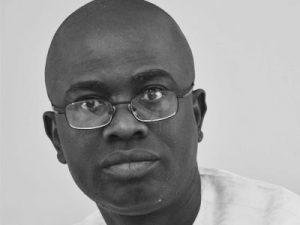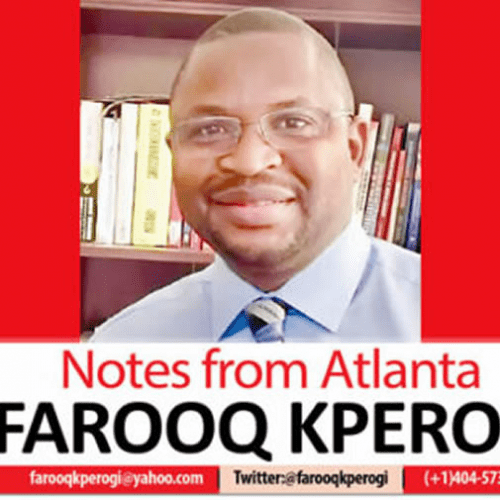By Prof. Onwuchekwa Jemie
Let us celebrate Prof. Benjamin Obiefuna Nwabueze, one of the great legal minds of our generation.
It is difficult to speak of Nwabueze except in superlatives. His grounding was in constitutional law. He was a renowned scholar, a university teacher and a mentor to many, a prolific author of many books, an adviser to governments across the African continent, and a drafter of democratic constitutions.
The encomiums showered on Nwabueze from all sides are well deserved—and so are some of the criticisms. Nwabueze was not a god with feet of clay. He was thoroughly human, with his full share of the positives and negatives to which all flesh is heir. And when it is all added up, when his achievements are weighed against his failings, he would be found to be an exceptional person, a rare specimen of the human family.

Nwabueze’s most ambitious project was the drafting of the Nigerian Constitution of 1979. Led by Chief Rotimi Williams, the nation’s then-leading name in the legal profession, Prof. Nwabueze and the other eminences of the 1978-79 Constitution Drafting Committee constructed what turned out to be an ill-conceived, ill-fitting American-style outfit which was draped over Nigeria as it attempted to return to civilian rule after 13 years of military dictatorship and civil war.
The goal was admirable, but the method and the result were dismal. All that the 1979 Constitution did was to canonise the military dictatorship then in practice, with all the decentralised and reserved powers of the four Regions of the First Republic taken away and handed to a central, plenipotentiary civilian federal government.
The 1979 Constitution was a boomerang. When its obvious defects were observed during the civilian government of Shehu Shagari, October 1, 1979 to December 31, 1983, discussions to amend it had hardly begun when another military coup blew everything to pieces. Then was to follow 16 more years of military dictatorship. Nigeria whirled further and faster downhill till it hit bottom with six years of General Sani Abacha, the worst of them all.
Abacha’s sudden death in 1998 brought no relief. On the contrary, his henchman and successor dredged up the flawed 1979 Constitution, transmogrified it a dozen-fold, and foisted it on the incoming civilian government as the 1999 Constitution.

One might ask: Where was Prof. Nwabueze in all this drama?
It takes intelligence to perceive one’s mistakes; humility to accept them when pointed out by others; godliness to confess your mistakes publicly and accept responsibility for them; and saintliness to openly and seriously engage to correct your mistakes and undo the damage.
Prof. Nwabueze was one of the first to see the flaws of the 1979 Constitution. Here are his own words in a newspaper interview:
“Quite frankly, there are many flaws and many errors in the content of the constitution. So many errors, and I as a person was partly responsible because I was a member of the constitution drafting committee set up by the military government in 1978. I was not only a member but chairman of one of the sub-committees that produced Chapter 2, the fundamental objectives and [principles of state policy]; and one of the cardinal flaws in the constitution is the concentration of powers in the centre.
“That is why I accept that I am partly responsible for that because at the time, late Chief Rotimi Williams, a close friend of mine, and nearly everybody in the Constitution Drafting Committee, were so overwhelmed with this feeling, this patriotic feeling that we needed unity and the most effective way to achieve unity of the country is by having a very strong central government.
“Most of us in the committee shared that idea at the time. Chief Williams shared it because of the patriotism in us and we wanted a united Nigeria, we feel we can achieve unity by having a strong central government. Then, what did we do to achieve our mis-guided objective? We took away 50 per cent of the items on the concurrent list and gave it to the centre.
“We feel by doing this, we are establishing unity. We did not stop at that. We looked at the residual matters, these are matters exclusive to the states, we took a large part of it, more than 30 percent and close to 50 percent; we took it away from states and gave to the centre. And the result is the almighty Federal Government, but what we discover was that instead of producing unity, we produced disunity because of the intensity of the struggle to control the centre.
“The intensity is so much and it is not just in the political power that was concentrated at the centre, much of the money also went to the centre, and so by action we destroyed what is called fiscal federalism. Too much money at the centre increased the struggle for the control of the centre and the control of the money itself, and that has remained the feature of the Constitution up till today.
“So when people struggle and agitate for true federalism, for fiscal federalism, they know what they are talking about and they are right, that must be changed; and until it is changed, we might not achieve true federalism because the basis on which we did it has proved to be misguided, the unity we thought we will achieve was not achieved and what we achieved was more disunity than unity because of the struggle. . . .
“So not only restructuring in political power, not only restructuring in financial power, you have to restructure the territorial basis of zones. . . .”
And so, the 1979 Constitution was Nwabueze’s greatest project but also a cataclysmic failure, and his deepest regret. His efforts to correct that mistake and make amends to the nation came to nought. In his own voice, and in the voice of The Patriots, the activist organization which he co-founded, Nwabueze repeatedly called for a Conference of the Nigerian Nationalities to write a new Constitution and restructure the territory in a way that reflects the will of the People. When eventually President Goodluck Jonathan organized such a Conference in 2014, his successor in 2015 paid no heed whatsoever to its recommendations. Nigerians can judge for themselves in what direction the nation travelled in his successor’s eight years in office.
The struggle for restructuring and a new Constitution continues.
For Nwabueze, it’s lights out.
Good night, Sir.
And may the Good Lord who made us all and sees every heart, forgive you your sins, look kindly on your efforts to make amends for your mistakes, and grant you rest in His Heavenly Kingdom.
________
Prof. Onwuchekwa Jemie was a co-founder of The Guadian Newspaper, and its pioneer Editorial Page Editor. He was also Editor-in-Chief of BusinessDay Newspaper.





















